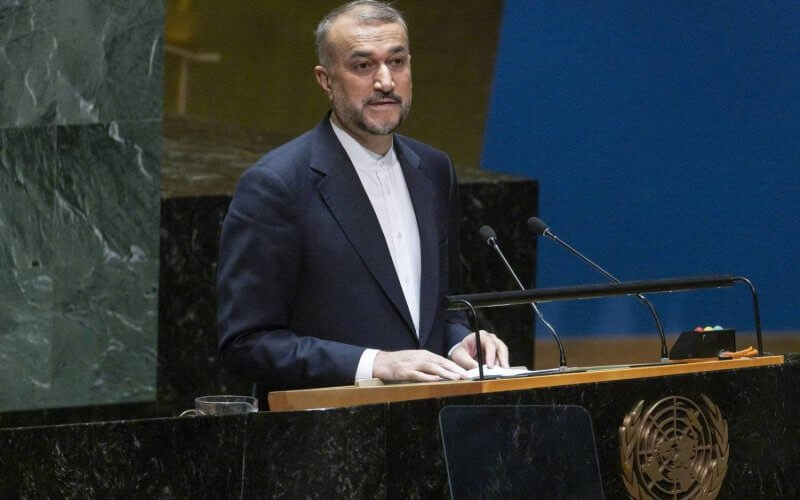The Biden administration recently granted a visa to the Iran regime’s foreign minister for the purpose of his attendance at a United Nations meeting this week.
Hossein Amir-Abdollahian, in what will be his third visit to the United States since the October massacre in southern Israel, is expected to attend Thursday’s Security Council proposal on Palestinian statehood.
The minister’s presence will come less than a week after his country launched a massive aerial attack on Israel.
On Monday, Sen. James Lankford (R-OK) sent a letter to Secretary of State Antony Blinken condemning the trip and requesting that Amir-Abdollahian's permission to enter the U.S. be cancelled immediately.
“Given his ties to terrorism against Israel and U.S. forces, Amir-Abdollahian should not be welcome in our country. April 18, the day of his anticipated meeting at the U.N., also marks the 41st anniversary of Iran-backed Hezbollah’s 1983 bombing of the U.S. Embassy in Beirut, Lebanon, which killed 63 people, including 52 Lebanese and American Embassy employees, and injured 120. Several months later, Hezbollah’s bombing of the U.S. Marine Corps barracks in Beirut would end up killing another 241 Americans. Hosting a senior member of the IRGC on the 41st anniversary of Hezbollah’s terrorist attack would be an insult to the victims and their families,” Lankford wrote.
The Senator went on to describe Amir-Abdollahian as having “irrefutable ties to Hamas terrorists who are currently holding 133 hostages, including five Americans.”
Under a 1947 ‘headquarters agreement,’ the U.S. is required to approve the admission of U.N. associates "without charge and as promptly as possible."
The State Department has always maintained that it reserves the right to limit this obligation in cases of national security, as the Reagan administration did in 1988 by refusing to allow former PLO leader Yasser Arafat’s entry. In that instance, then U.S. Secretary of State George Schultz defended the action because he felt that the terror leader “knows of, condones, and lends support to acts of terrorism.”
In 2019, the Trump administration restricted the movements of Tehran’s former foreign minister, Mohammad Javad Zarif, to a six-block area in and around the U.N.’s New York City compound. In 2020, they forbade his entrance to the U.S. entirely.
Related Story: Palestinian U.N. Membership is Officially Referred to Security Council









